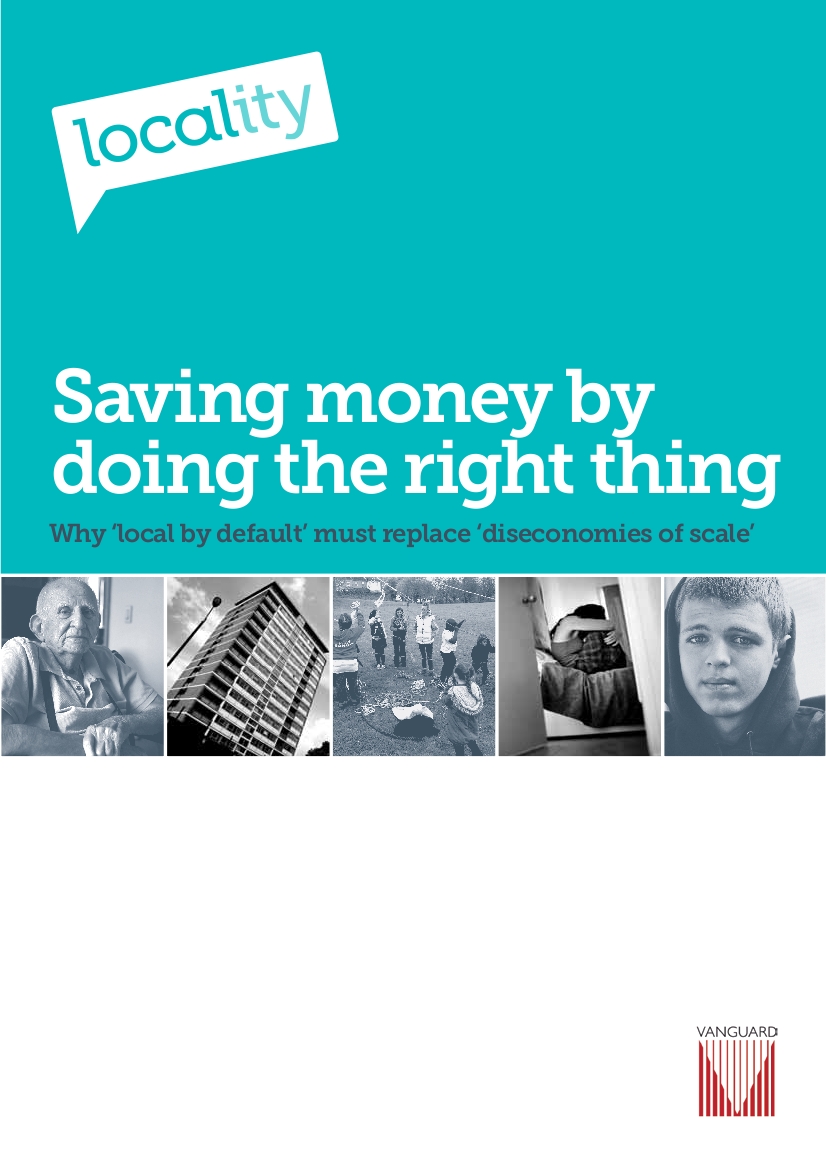Public services work poorly. Every day the press carries stories of failure, waste and basic human needs unmet. Health, social care and children’s services are buckling, while local authorities cut discretionary spending on libraries, parks and other local amenities to the bone.
At the same time the third sector, often referenced as part of the solution, is under ever increasing pressure as demand increases and funding declines, and may become part of the same crisis, its distinctiveness in danger of being progressively erased as it is co-opted into unreformed service delivery models by the public-sector regulatory and policy regime.
This report shows why UK public sector organisations fail to meet people’s needs and why demand is rising. The two main causes, discovered empirically in the studies, are the belief in ‘economies of scale’ and the belief in the standardisation of services. Together, these beliefs prevent organisations from understanding and meeting people’s needs.
Perhaps the most surprising finding, described in Part I, is that real demand for most public services is not rising. It is the artificial demand, created and amplified by organisations themselves which is rising. This finding marks a seminal moment in our understanding of demand for public sector services because it shows us exactly what to do. No further cuts or attempts to ‘manage’ demand by putting it online are required. We know how to reduce millions of pounds worth of unnecessary demand on public services; simply design services which are able to do the right thing for people in the first place. More effective services are more efficient, as people have their needs met more quickly rather than having to place numerous demands on the old unresponsive systems.
The effects of scale principles on the most disadvantaged and vulnerable people helped by local third sector organisations are described in Part Ib. The belief that ‘economies of scale’ are achieved by commissioning large public sector contracts has a number of damaging consequences with no increase in efficiency. One consequence is an increase in costly administrative burdens of tendering, compliance and monitoring, to maximise resource allocation to the frontline and away from management and administration. More worrying is the impact on vulnerable people; they are provided with what has been commissioned rather than what they need. Other unintended consequences of large scale contracts include:
- the creation of silos and disjointed services across all sectors
- a decrease in competition and diversity of supply
- a decrease in innovation and cooperation
- an increase in uncertainty
- a culture of fear
- the erosion of independence
Part III describes the implications for policy and regulation. The report does not advocate further privatisation, nor conclude that private is good and public is bad. The conclusion is simple; if the public sector is to provide services that meet people’s needs at reduced cost, scale principles must be abandoned.
The new principles for services that meet people’s needs:
- are ‘local by default’
- help people to help themselves
- ensure a focus on purpose, not outcomes
- manage value not cost
The report ends with a call to action. We know how to improve the lives of individuals and communities and the good news is that it doesn’t take any more resources to do it. But it does take courageous public sector leaders who are willing to follow evidence and abandon old beliefs. Only they can do it.
Download the report
Contents
Foreword
Executive summary
Introduction
Evidence base and methodology
Part I – The problem: ‘diseconomies of scale’ and its impact
- The impact on people who need help
- The impact on civil society
- The impact on the lives of 4 individuals
The stories of:
Part II – A counter strategy: ‘local by default’
- Principles and practice for effective service design
- Radical multi-disciplinary working
- An example from the Netherlands
Part III – Implications for policy and regulation
Appendix





